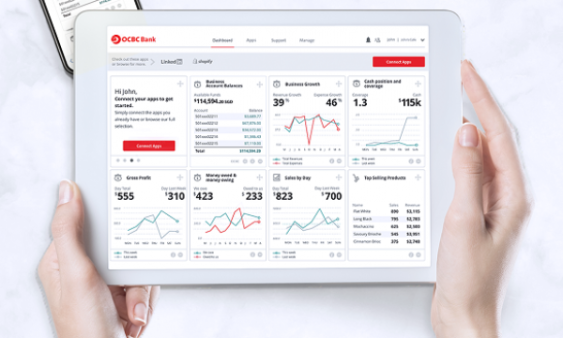
How Singapore banks are using analytics to drive SME growth
By analysing massive data volumes, UOB is able to slash loan processing time by 60%.
Banks in Singapore are relooking at ways to both grow their customers and lending to SMEs especially with a study from McKinsey noting that lending to small and medium-sized businesses account for over a third of all bank loans in Asia Pacific.
Despite their significant contribution to the economy, SMEs fail to get the support they need from the traditional financial system as most banks lack the necessary information to assess the creditworthiness of SMEs accurately and often make bad lending decisions. As a result, banks’ risk costs for the SME segment in Asia Pacific are double those for the large corporate segment, data from McKinsey show.
UOB is taking on this challenge as it seeks to get more data from customers accounts and see what kind of business they are doing in almost real time. This allows the bank to grant loans faster and in situations where they normally would not have. UOB knows that a shorter processing time for loans leads to more customers, which is why Mervyn Koh, managing director and country head of business banking for Singapore, said that the enhanced credit engine complements its existing sources of information by including new pools of data, such as the company’s day-to- day operations, to gain deeper insights into a small business’ credit behaviour.
A business loan typically takes at least a week to process and required several documents from applicants. With the new analytics engine, the processing time has been cut by 60% and the process to supply data has been automated with government-enabled service MyInfo Business.
UOB digitalises processes such as accounting and payroll, enabling small businesses to gain greater visibility of their day-to-day operations and financial position.
“Through the enhanced credit underwriting engine, we are able to help more small businesses access financing through products such as our flagship collateral-free loan, UOB BizMoney,” Koh told Singapore Business Review. And to support customers in their e-commerce programs, UOB integrated the digital solutions of Shopmatic, an e-commerce solutions provider, into UOB BizSmart in May 2019.
Also read: UOB unveils digital business solutions for SME
Shopmatic’s solution enables small businesses to list their products and services on multiple marketplaces and social channels such as Amazon, Lazada, Qoo10 and Facebook easily.
“With the sales data generated on Shopmatic, UOB is able to draw insights from it and use them alongside other more traditional information such as the company’s latest financial statements to determine the business’ credit profile more accurately. This has made it easier for small businesses to apply for UOB business loans, especially if they do not have the track required, thereby improving their access to bank financing,” Koh said.
Serial entrepreneurs
OCBC has adopted a different strategy but is also using a data-driven approach to identify successful people behind businesses and use that information to make loans to their new ventures. Serial entrepreneurs are their target as the bank believes they are a sizeable market, with a third of businesses incorporated in 2015-2017 belonging to an entrepreneur already running at least one business. In January, the bank launched its Serial Entrepreneur business which was a result of a year-long pilot programme in which $100m of business loans have been approved.d.
Also read: OCBC launches digital dashboard for SMEs
Christie Chu, OCBC’s head of emerging business, global commercial banking, said, “We realised that we should focus on the serial entrepreneur and recognise his or her journey of successes and failures, rather than assessing a business solely on its financial track record. From taking a serial entrepreneur’s track record in Singapore into account for a loan for his first overseas business, to facilitating takeovers of other companies and otherwise providing assistance toward their goal of becoming a listed company – the pilot has been very meaningful and yielded many successes so far.”
The business is centred on the bank’s new credit approach that takes into account the entrepreneur’s experience, business track record and overall business strategy across his or her group of companies. “This focus on the serial entrepreneur greatly improves upon the prevailing industry model which evaluates each business on a standalone basis based on their track record and financial credibility which makes it difficult for startups less than two years old to obtain financing – even if the founder has operating businesses and a proven track record,” OCBC added.
The serial entrepreneur business has teams comprising specialists in cash management, mezzanine capital and wealth management, with a relationship manager to form an integrated support network for serial entrepreneurs. OCBC noted how its cash management specialists guided a select group of serial entrepreneurs to become one of the first in Singapore to start using the funds transfer service, PayNow, for their businesses. “Exclusive economic and equity outlook events with the bank’s wealth management specialists were also organised for the serial entrepreneurs,” it added.






















 Advertise
Advertise








